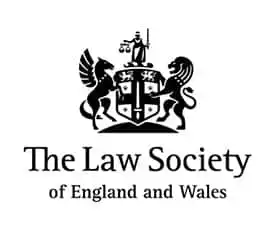The Difference Between Labour and Employment Law
The terms labour and employment laws are often used interchangeably. These two terms are quite different when it comes to their meanings. It is critical for one to be able to distinguish between the two.
What Are The Differences?
Employers, employees and their representatives such as lawyers need to be able to tell the difference between labour and employment law.
Labour laws are much narrower in comparison to employment laws. These laws concern the relationship between unions and collective bargaining agreements. They govern the relationship between employees under unions and employers.
Labour laws protect the rights of employees as a whole. They shield them against any victimisation or harassment as a group. The minimum wage for workers is contained within these laws.
They also, protect the rights and interests of unions and employers. They ensure that the rights and privileges of employers are not infringed upon.
Labour laws guarantee the right to strike for workers. They can directly participate in strikes. These laws also facilitate for arbitration to avert strikes through amicable solutions to grievances.

Employment Laws
Employment laws on the other hand deal with the rights of individual employees. These laws focus on the relationship between an employer and an individual employee. They do not involve the representation of groups of employees.
Issues within the contract of an employee are tackled within employment laws. Discrimination, wages, working hours, harassment, privacy rights and whistleblowing are all dealt with within employment rights.
These laws are not bound by any collective agreements. They contain the duties of an employee and what is expected of him or her. The rights of an employee within the workplace are also covered.
Collective bargaining agreements within labour laws need to be written. Such agreements need to be agreed upon and signed by relevant parties for them to take effect.
Employment Agreements
Employment agreements, on the other hand, can be either written or oral. These contracts can be entered into by word of mouth. They need not be in writing.
Both labour and employment laws revolve around the same jurisdiction. They all deal with employment matters. However, the procedures, cases and laws involved in the two are handled differently. Labour laws deal with the collective rights of many workers.
Unions are formed to champion the rights of these workers. Employment laws deal with individual employees. They focus on grievances that such employees may have against their employees.
Both of these laws are geared towards the protection of rights. These rights are of employees and employers. They ensure that regulations are adhered to within the workplace.
Disclaimer: The contents of this article are for information purposes only and should not be relied upon as formal legal advice. We cannot accept responsibility for any loss as a result of acts or omissions taken in respect of this article. Specific legal advice should be given by solicitors that are qualified in employment law.
For any information relating to our services please give us a call and we will be very happy to help.
What Can We Help With?
- Settlement and compromise agreements
- Unfair dismissal advice
- Employment tribunal advice
- Discrimination claims
- Redundancy advice
- Breach of contract
- Advice on maternity and paternity leave
- Book A Free Consultation
- Understand Your Situation
- Know Where You Stand
Our 3 Step Process
Book A Free Consultation
This complimentary consultation allows our employment solicitors to understand more about your specific situation so we can provide you with the best advice possible.
We’ll lay out your options and will advise you upfront of any costs involved.
Our 3 Step Process
Understand Your Situation
Understanding your unique situation will help us to understand how we can help you move forward with more clarity.
Although everyone’s situation is unique, we’ve most likely dealt with similar scenarios before.
Our 3 Step Process
Know Where You Stand
Whether that’s pursuing unfair dismissal, negotiating a larger settlement agreement, starting a claim for discrimination or simply having peace of mind.
We’ll help you feel clearer and more settled.

0 / 127
5 star reviews

0 / 50
5 star reviews
Yell.com

0 / 231
5 star reviews
ReviewSolicitors
Client Feedback
We have formed many long-lasting relationships by listening to feedback and understanding our clients’ needs. Our employment law advice provides exceptional care and tailored support.
Award Winning Service
Our award-winning legal services are recognised for excellence, professionalism, and client success. We provide tailored strategies with a focus on precision, integrity, and results.
Contact a Lawyer Today
Davidson House,
Forbury Square,
Reading, Berkshire,
RG1 3EU
0118 914 5622
info@dphlegal.com









